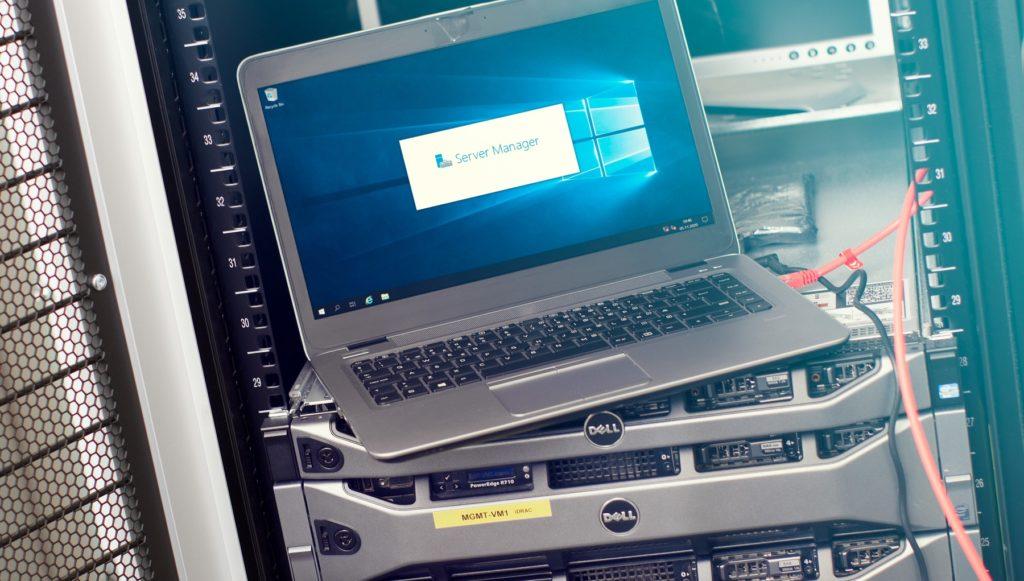The information technology industry is increasing rapidly. As a result, it has made the demand for IT professionals increase.
It is true to say that every business and company needs IT experts in designing their computing infrastructure based on their needs. These engineers will ensure that the network systems will run smoothly.
The fact is that organizations cannot carry out day-to-day tasks without these professionals. So, how to become a network engineer?
Keep reading to find out the different skills, pathways, and certifications you need to be successful in this area.
How to Become a Network Engineer
Becoming an engineer in this field requires both determination and time. It means you do not have a shortcut to touch it. Therefore, do not expect to get this job overnight.

Following are the recommended steps for everyone from beginners to becoming engineers in this area.
1. Complete Required Education Requirements
If you expect to get a job in this area, we recommend completing a bachelor’s degree in a related area, such as computer science or systems engineering.
Some schools and educational centers deliver degree programs specific to those pursuing network engineering, allowing you to get extra certifications in this process.
It is alright to get an associate degree, but a bachelor’s degree is always better.
2. Get Vendor-Neutral Certification
The fact is that there are many certifications suitable for people who want to be engineers in this field. One of the most popular options is receiving vendor-neutral certifications.
They only give you the basics of the information technology area. In other words, they don’t give you in-depth instructions on a special organization’s devices.
If you want to receive one of these certifications, passing one or more exams is essential.
It can take six to eighteen months to receive your certificate. Here are some valuable certifications for network engineers:
CompTIA A+
It is an entry-level certification. It allows you to get a basic understanding of IT-related topics. Once you get it, you can expect to get CompTIA Network + certification as it is more complex.
CompTIA Network+
It is considered a sequel to CompTIA A+, slightly lower. So you should work hard to get CompTIA A+ before getting this certificate.
However, it doesn’t mean that you must have a CompTIA A+ certification and then attempt to gain this option.
CompTIA Network+ certification will teach you about operating and troubleshooting various devices.
CompTIA Security+
CompTIA Security+ certification concentrates primarily on networks security as well as related fields.
This certification is very popular among those who desire to land a job in network security. And, of course, you have to handle an exam before receiving this certification.
3. Pick the Correct Device Path
Once you gain at least one basic certification, you should pursue extra credentials related to a certain business and its special devices.
By looking at a business’s products you target, you’ll know what you’re most comfortable working with.
Here are some examples of unique products of a company and business.
Cisco products:
- Routers
- Security
- Switches
- Wireless phones
- Storage software
Microsoft products:
- Microsoft has many software programs: Windows, Business (Dynamics Skype, and Azure), Office (PowerPoint, Outlook, Word, Excel, and 365).
- Their devices include Microsoft keyboard, mouse, mobile devices, computer models, etc.
4. Gain Vendor-Specific Certification
After having finished at least one vendor-neutral certification and deciding what your targeted tract is, you can determine the vendor-specific certification which suits you best.
It is necessary to complete extra training specific to the business or company you prefer. The following are certifications, and some companies may require their candidates to have them.
SolarWinds
This certification is the only option provided by the company. Yet, it allows an aspiring professional to choose between two different paths in addition to his career within his company.
You will have to complete one written exam to gain this certification.
Cisco
- Beginners
It will deliver you the chance to traverse numerous positions or the potential to gain a high-paying salary.
This course does not require any prerequisites. Therefore, it provides you with background knowledge in information technology.
- Mid-level
It is a sequel to CCIE. Therefore, you must first obtain a CCIE certificate if you want to get it. This option allows candidates to pick from six additional areas: enterprise, security, data center, service provider, collaboration, and DevNet pro.
Microsoft
- Microsoft Certified: Azure Administrator Associate
This certification gives candidates the required expertise to work with Azure software. It enables them to oversee virtual networks, storage, or other program resources.
You will also need to handle an exam to get this certification.
- Microsoft 365 Certified: Security Administrator Associate
It delivers candidates in-depth knowledge of Microsoft 365 software. It will teach them how to recognize potential risks or network security techniques utilized in a program.
You will also have to handle an exam to gain this certification.
Above are some samples of entry-level or mid-level certifications, and candidates can get them by obeying a vendor-specific credential path.
You will need to renew these certifications every few years. Hence, they allow candidates to find out the most suitable course and secure new certifications to enhance candidates’ knowledge related to the IT area.
5. Start Job Research
After getting the required education requirement and finishing certifications to improve your pro standing, it is time to start exploring positions related to this field.
When creating your resume, don’t forget to include relevant credentials and all certifications you have. So, employers will rate you higher than other candidates.
What Is a Network Engineer?
As an engineer in this area, you will likely have to design and implement complex computer networks that organizations and businesses depend on. It includes:
- Phone systems
- Wifi/internet
- Intranet systems
Once you’ve built and launched these infrastructures, you must maintain them.

Network engineers are often critical thinkers. In addition, they also often have extensive experience in complex networks for organizations and businesses.
These professionals also often possess strong backgrounds in security and information technology. That’s not all. They also put a lot of effort into understanding the latest hardware and software trends.
They may also be responsible for monitoring many aspects of the network, including software updates or security and data management.
If you want to succeed in this field, you’ll have to keep the correct combination of problem-solving experience and IT knowledge.
Additionally, you will need to be able to come up with proactive solutions that prevent problems from occurring in the first place.
They also often have to manage other members of their IT team. Hence, it is essential to possess soft skills such as:
- Team management skill
- Communication skill
- Collaboration skill
- Leadership skill
- And more
In general, network engineers have a critical role. Therefore, this position is not usually an entry-level position.
What Does a Network Engineer Do?
If you are an expert in this area, you often have to plan, monitor, and implement computer networks.
Depending on your business and organization, your job description may vary. Yet, the tasks of these engineers also have similarities.
Here are the primary responsibilities of a network engineer:
- Responsible for the implementation and design of suitable systems.
- Not only responsible for designing a system but also for it working correctly.
- Create proper documentation to ensure that there are no hiccups in the future.
- Provide support to other IT staff.
What Skills Does a Network Engineer Need?
If you want to succeed in this field, you need to equip yourself with hard and soft skills.

Hard Skills
Here’s a list of the hard skills you’ll need to succeed in your job.
Programming
We recommend familiarizing yourself with well-known scripting languages for enterprise-grade networks, such as
- Python
- Perl
- Ruby
Automation-friendly languages are also beneficial for potential engineers as many network functions are becoming automated. These include:
- Ansible
- Terraform
- Java
- since
Networking
If you want to be a talented engineer in this area, it is essential to build a solid knowledge of integrating LAN, WAN, SD-branch, SD-WAN, and many more networks.
Understanding of Infrastructure
As a network professional, it may be your responsibility to maintain the network’s infrastructure and advise what hardware it will reside on.
loT knowledge
Some network architectures need Wi-Fi to support their loT systems, such as SD-branch.
It will certainly significantly impact business infrastructure, traffic, and network security.
Expert Knowledge of Domain-Name System
The internet, cũng như most enterprise networks, was built on DNS. Hence, it is essential to understand how to handle it.
Can Work With an MPLS Network
Even though SD-WAN is replacing MPLS, you should consider working with an MPLS-exclusive network is still a critical skill.
Virtualization Abilities
As a skilled engineer, you will have to be proficient with automated network functions, such as SD-WAN, to optimize the network’s resources.
Have Knowledge of Firewalls and Security
Your company or business may have an IT security officer in place. However, it is always best to implement and maintain a network firewall of your business yourself.
Soft Skills
You will have to work and coordinate with many different people to complete your tasks. That’s when the following soft skills come into play.
Communicate
This skill will allow you to effectively describe your mission and solutions to employees and management who may not be in the same field as you.
Organization
You will need this skill to perform multiple issues and tasks simultaneously effectively.
Problem-solving
As someone responsible for the network for a business, it is essential to resolve issues as quickly as possible. That way, you can minimize the damage to your business or organization.
Analytical Thinking
This skill is to ensure that the network and systems of your business are always running smoothly. Additionally, it allows you to identify new requirements as early as possible proactively.
Time Management
This essential skill allows you to handle tasks efficiently on time by prioritizing tasks.
Salary and Job Outlook
One of the most important factors when choosing a career is salary. In general, engineers in this field are very well paid.
Of course, the average salary will vary depending on your position and role level. It also depends on the industry you are in.
One of the best things about being a network engineer is that you’re not limited to a specific type of business.
Instead, it is possible to work in many different areas, including:
- Legal
- Finance
- Education
- Enterprise
- And more
No matter what company or organization you are in, you also need to help them keep their network running.
According to our data, the average salary of engineers in this area is usually $108,215 per year.
Furthermore, the top 10% of network engineers across the U.S. make more than $162,790 a year.
Today, technology is increasingly evolving, leading to an increasing role of information technology professionals. Therefore, the career opportunities in this field are enormous.
It is estimated that the computer occupation is expected to grow 11% from 2019 to 2029. Network and computer system administrators can expect 4% growth in the same period.
So, pursuing a career in network engineering is an excellent choice for information technology enthusiasts.
Network Engineer Certifications
Here is a list of certifications that allow you to advance your skills and career in this field:
- LPI Linux Essentials
- ITIL Foundation Certification
- Cisco Certified Network Associate (CCNA)
- CompTIA A+
- CompTIA Cloud Essentials
- CompTIA Network+
- CompTIA Security+
- CompTIA Project+
- CompTIA Secure Infrastructure Specialist
- CompTIA IT Operations Specialist
- Amazon AWS SysOps Administrator-Associate
Conclusion
Generally, becoming a network engineer isn’t easy, but it is possible when you have the right qualifications and experience.
Patience is the key to success in this field. Therefore, do not expect to become an expert in this area overnight.
